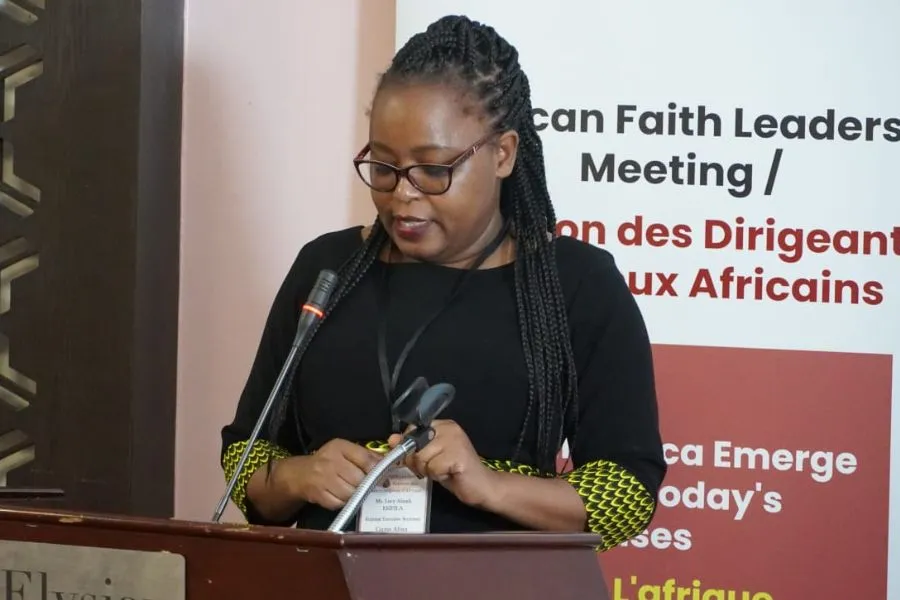“One of the expected outcomes from this meeting is to develop strategies to promote interfaith voice and recommendations in national, regional, and international decision-making venues to address today's multiple crises and help Africa emerge better,” Ms. Esipila said about the meeting that started on Sunday, August 6 under the theme, “How can Africa emerge better from today's multiple crises?”
As faith-based organizations and leaders, the Caritas Africa official added, “we can surely do our part in creating an enabling environment for bolstering local production… buy from the smallholder farmers, link them to markets.”
She expressed confidence in the church structures’ ability to push “for transparent and accountable governance of the use of our resources.”
Citing some of the consequences of the economic crisis including a period of protests in Kenya, and the coup in Niger, the Caritas Africa official said that the meeting will also reflect on how Africa can emerge better from such crises.
“Our discussions will unpack the role of Special Drawing Rights (SDRs), foreign aid, and Multilateral Development Banks and their potential to provide additional financial resources to African countries to support response to the multiple crises and economic recovery,” she said.
She added that the meeting “will, more importantly, emphasize the importance of good governance and accountability in the effective utilization of such resources.”
In a Twitter post announcing the commencement of the meeting that is set to end Wednesday, August 9, Caritas officials drew attention to the petition to the Group of 20 Finance Ministers and Central Bank Governors by leaders of multiple religious’ denominations in Africa.
In the petition following a meeting held in Lomé, Togo on July 14, the leaders of religious denominations in Africa urged the G20 to “decree debt moratorium and debt relief initiatives for African countries, and take measures, including domestic legislation, to compel full public and private creditor participation and transparency.”
They further urged the group to “accelerate rechanneling to the continent of Special Drawing Rights from countries able to do so, without adding to the debt and creating conditions that worsen poverty.”
Silas Mwale Isenjia is a Kenyan journalist with a great zeal and interest for Catholic Church related communication. He holds a Bachelor’s Degree in Linguistics, Media and Communication from Moi University in Kenya. Silas has vast experience in the Media production industry. He currently works as a Journalist for ACI Africa.








